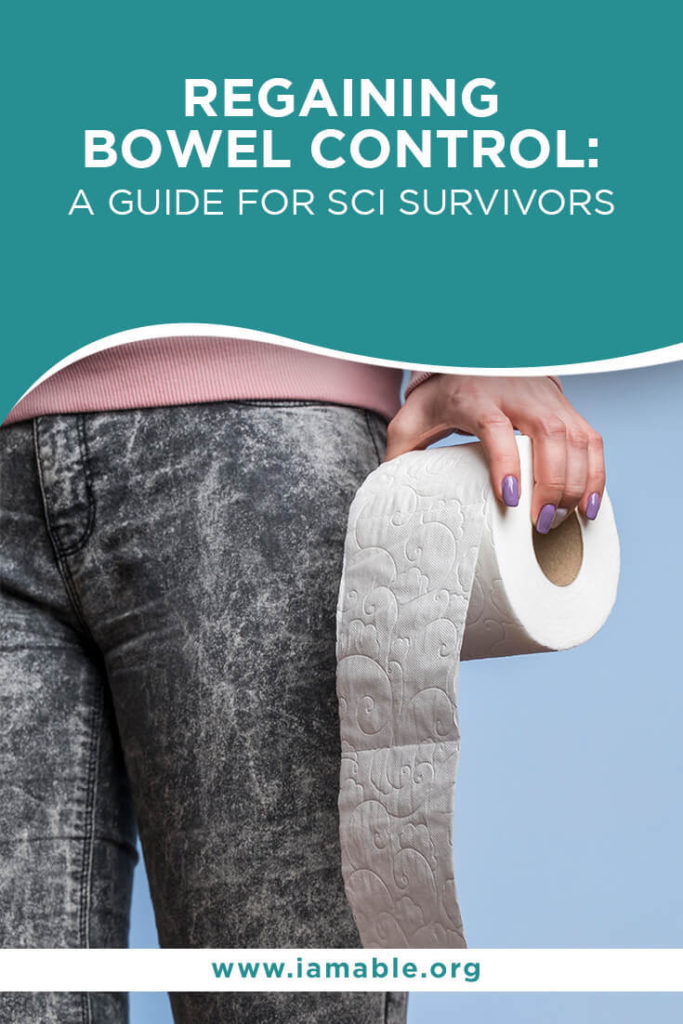Miami, FL 33186

Spinal cord injuries often affect bowel function, primarily if the tissue damage occurs at the T12 vertebral bone or higher. In most cases, this causes your bowels to empty once the rectal vault reaches maximum capacity. This can lead to pain, discomfort, and untimely excretion of fecal matter. Find out how you can regain bowel control by following a few tips and scheduling a regular visit at a Miami spinal rehab center like iAM ABLE.
Doctors refer to the loss of bowel control in SCI survivors as neurogenic bowel dysfunction. According to studies, about 80 percent of SCI patients struggle with this disorder. The problem develops due to the loss of sensation and motor control in the upper and lower gastrointestinal tract.
In SCI survivors, the poor transmission of motor or sensory signals to the digestive system occurs because of severed or damaged nerve connections. It can lead to various digestive function problems, including:
Some patients also note additional problems such as belly pain, constipation, diarrhea, and upset stomach. In most cases, primary doctors detect neurogenic bowel dysfunction during the recovery phase, so they immediately provide patients with instructions on establishing a healthy bowel program.
Improving bowel movement for SCI patients is certainly not impossible, especially if a team of professionals helps you. For example, if you work hand in hand with a Miami spinal rehab center, you can establish an SCI recovery program that will help you regain your spinal cord’s function. A team of experienced SCI rehabilitation professionals can also help you figure out specific factors to create your bowel program. Some examples of these factors include the following:
The type of food you eat and the average amount of water you drink each day can heavily impact your bowel movements. Generally, people with flaccid bowel movements need to increase fiber intake and regulate water consumption. Ideally, you should eat about 15 grams of fiber and drink roughly three quarts of water each day.
Thousands of SCI patients take medications to cope with secondary conditions that develop hand in hand with their SCI symptoms. Notably, the majority of these medications fall under NSAIDs or laxatives. Unfortunately, studies note that these drugs can cause problems for SCI patients when taken in large amounts.
NSAIDs, a popular pain reliever, can affect bowel movements. According to studies, too many NSAIDs in the body can trigger small intestine inflammation, diarrhea, intestinal perforations, and ulcers. It can also exacerbate inflammatory bowel disease and other digestive system diseases.
On the one hand, laxatives can work against the digestive system’s normal function. So instead of easing the movement of fecal matter, excessive intake can build tolerance against laxatives and cause extreme discomfort when you try to defecate.
It’s a good idea to talk to your doctor about alternative options for pain and bowel management, especially if you observe problems while using NSAIDs and laxatives.
There are different options you can use to empty your bowels. We strongly suggest deciding based on the degree of nerve damage and your personal preferences. Here is a quick overview of the different methods used by SCI survivors to stimulate bowel movement:
We strongly recommend consulting with your doctor about these different options so you can determine what can help you improve your bowel program.
SCI rehab exercises can help you improve your recovery journey and bladder movement. Essentially, by beginning your rehabilitation program, you can slowly regain lost nerve function. In addition, SCI rehabilitation exercises can also help you retrain the muscles involved in facilitating smooth bowel movements.
We strongly recommend tapping into SCI rehabilitation programs as soon as you heal from your injuries. This way, you can repair severed nerve connections and ensure that your brain and other parts can communicate adequately with each other.
Recovering from SCI is not virtually impossible, as long as you seek timely rehabilitation. If you have started healing from your injuries, we strongly recommend coordinating with multi-disciplinary teams such as our SCI specialists at iAM ABLE. Essentially, a rehabilitation program can include various components, such as:
Rest assured, the program you will undergo will specifically cater to your needs. That’s because our fitness trainers and therapists customize the approach based on a patient’s condition, degree of paralysis, nerve damage complaint, pre-existing health problems, and SCI symptoms.
Find out more about how a Miami spinal rehab center can help you improve your SCI recovery journey by reading our eBook. Alternatively, you can visit us at iAM ABLE to learn about our SCI rehabilitation programs.
Grab our free e-book 7 Unbelievably Important Steps to Take to THRIVE after Paralysis by clicking the image below.
